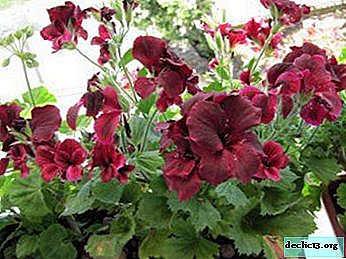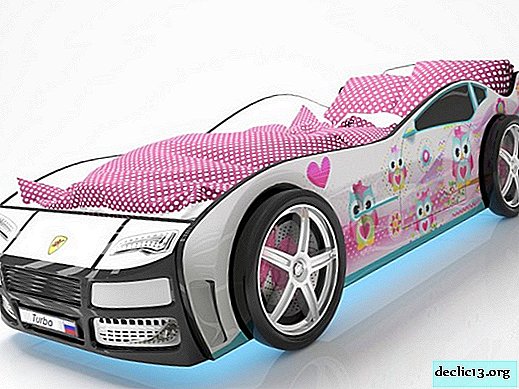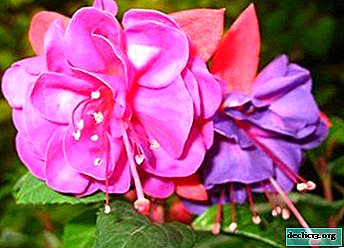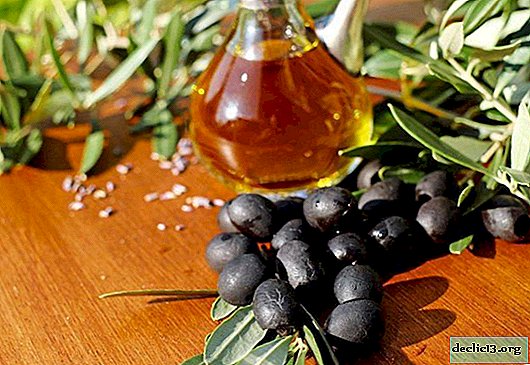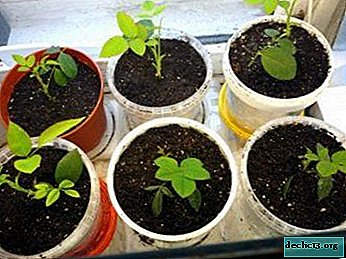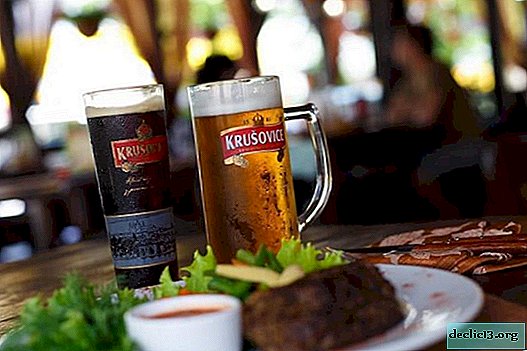Treatment of tonsillitis in children at home

Angina is the most common childhood illness. Children under the age of five at least once encounter this ailment. In children suffering from chronic tonsillitis, exacerbations appear much more often. There are frequent cases when they have to treat sore throat at home several times a year.
If you suspect that the child has a sore throat, you should consult a pediatrician to clarify the diagnosis and prescribe the appropriate treatment. Plaque on tonsils is not always a sign of ailment. The approach to treatment depends on the origin of angina. Only a doctor can determine the need for hospitalization, conduct tests and choose effective medications.
Angina is a disease that can be successfully treated at home. Sometimes, treatment is recommended in a hospital setting.
When is the best time to take the child to the hospital?
- If there are serious complications. We are talking about phlegmon of the neck, rheumatic heart disease, parapharyngeal abscess. In this case, self-treatment can result in undesirable consequences.
- Severe condition, accompanied by severe intoxication. High fever, drowsiness, cramps, poor appetite or its complete absence, nausea, impaired breathing.
- There is no possibility of daily medical observation of a child up to a year.
- Concomitant chronic diseases. In this case, tonsillitis can cause unpredictable consequences, including kidney failure or diabetes.
Let's look at the treatment of angina using folk remedies and purchased medications.
Medical treatment of angina
Improper diet, rare walks in the fresh air, lack of physical activity - this is not a complete list of factors that adversely affect the state of the immune system. A cold drink, frozen legs or hypothermia can provoke the multiplication of pathogenic microorganisms in the gaps of the tonsils, which leads to the appearance of a sore throat.
In order for the child to recover quickly, parents are required to follow the recommendations of the pediatrician steadily. Home treatment includes bed rest, heavy drinking, regular gargling, and taking antibiotics.
- Gargling is recommended using ready-made products. The pharmacy sells sprays for children Ingalipt, Hexoral, Lugol.
- Antipyretic against temperature. Ibuprofen, Panadol, Paracetamol and Efferalgan.
- Antibiotics. Only the attending physician can prescribe, since an improperly selected medicine can aggravate the situation. The ideal option for children are considered antibiotics of the penicillin group, to which pathogens are extremely sensitive.
- Antihistamines in the form of syrup. Suprastin, Peritol, Zodak.
- Vitamin complexes. Alphabet, Centrum, Pikovit.
- Immunity enhancers should be taken with caution. Safe medicines for the baby's body - Kipferon and Viferon.
- If necessary, use the drug Tonsilgon, which is sold in the form of drops. Herbal medicine with a strong anti-inflammatory effect.
I note that not all pediatricians support the treatment of tonsillitis at home. A child’s body is extremely fragile and even a minor mistake can lead to bad consequences.
Treatment of angina in children with folk remedies
Angina is an acute condition characterized by inflammation of the tonsils. The ailment is accompanied by a jump in temperature and a sore throat, which intensifies when swallowing.
If there is the slightest suspicion that the child has a sore throat, try to call a doctor right away.
- Gargling. To rinse your throat, use an herbal decoction or a solution of iodized salt. Sea salt or soda will do. The number of rinses during the day is at least twenty.
- Propolis. Mix half a glass of water with a few drops of propolis alcohol tincture, and gargle with the resulting solution. In order not to heat the solution before each procedure, pour it into a thermos.
- Infusion of meadow cornflower. Gargle. Boil a spoon of dry cornflower in a glass of boiling water, insist for half an hour, strain and use 4 times a day.
- Compresses Warm up the lymph nodes with compresses based on camphor oil or vegetable oils.
- Inhalation from a decoction of fir branches. Pour a little chopped fir branches into a cast iron, add water and put on a stove. Pour water and a penicillin ampoule into the prepared broth. Cover the child with a blanket and let it breathe in pairs. At the end of the procedure, put the baby to bed.
- Tincture of large-flowered hydrangea leaves. Pour a spoonful of dry hydrangea leaves with a glass of boiling water, insist for half an hour, strain and give the child a drink. Use the product until the recovery is permanent.
- Wipe with vodka and vinegar. Combine vodka and vinegar in equal proportions, and spread the resulting composition to the child's legs, back and temples. Dampen socks in the mixture and put on the baby. After a quarter of an hour, remove the socks, and wrap the baby with a blanket.
Do not replace drug therapy with folk remedies against angina. Do not wrap the child’s neck much, since wrapping is the most common cause of tonsillitis complications and the occurrence of acute fever. Complications can lead to diseases of the joints and heart defects. It is strictly forbidden to use kerosene and other toxic substances to lubricate the tonsils of the child.
Symptoms of a sore throat in a child
Angina causes discomfort and provokes an increase in temperature. It is dangerous not by symptoms, but by the risk of serious complications caused by improper treatment. In order to prevent this, one should act as competently as possible and one should not neglect the qualified help of doctors.
- Tonsillitis or its exacerbation in chronic form is characterized by pain in the throat, which increases with swallowing. Other symptoms are general malaise, weakness, fatigue, fever, poor appetite, severe coughing, intoxication, and bad breath.
- Hyperemia in the region of the tonsils and pharynx, enlarged lymph nodes adjacent to the focus of inflammation. Purulent plugs, clearly visible against the background of enlarged and reddened tonsils.
- Runny nose and ear pain. The first sign that, against the background of inflammation of the tonsils, other diseases develop, including otitis media and rhinitis.
- The chronic form of angina does not have pronounced symptoms. Even during remission, as part of the examination of the oral cavity, you can see an increase in tonsils and cicatricial changes (uneven surface and loose structure of the glands).
Enlarged tonsils are not always a symptom of acute sore throat. There are frequent cases when normal tonsils are not proof of the absence of infection. Accurately determine the sore throat only a doctor can do.
Types of sore throat in children
Angina is an extensive group of throat diseases caused by fungi, bacteria and viruses. Treatment is prescribed depending on the organism that caused the problem. Often, representatives of medicine call angina acute tonsillitis. Children under the age of ten are most susceptible to infection. Adults who have weakened immunity can also be at risk.
Each variety manifests itself in different ways.
- Purulent tonsillitis. The main symptom is a sore throat, which periodically intensifies and gives to the area of the temple or ear. It affects gaps, which are an integral element of the tonsils. Lacunae turn red, later swell, and at the end are filled with pus. This is the result of vigorous activity of microbes. To stop the process, you need to quickly begin to treat tonsils.
- Viral sore throat. The consequence of a decrease in immunity, resulting in viruses attacking the tonsils. A type of disease is contagious and easily transmitted. At the initial stage, a fever with a high temperature appears. Later, the patient's condition is exacerbated by cutting pain, vomiting and diarrhea. Tonsils are covered with tiny red vesicles that leave small sores.
- Catarrhal sore throat. It is rare. The throat dries, after a burning sensation appears with pain. Body temperature rises slightly. The palatine arches are covered with red, and the tonsils acquire a whitish coating. At this time, the child feels a headache, apathy, weakness and suffers from intoxication. The number of clinical manifestations depends on the age of the baby.
- Herpes sore throat. The child's appetite worsens, the temperature rises and weakness appears. Later, he begins to experience severe sore throat and suffer from nasal congestion. A few days later, red blisters appear on the tonsils, at the site of which tiny wounds form. In the absence of proper treatment, suppurations form instead of vesicles.
- Follicular tonsillitis. This type of tonsillitis develops extremely rapidly. Initially, the temperature rises by several degrees, a sore throat appears and salivation increases. Some children have vomiting. Yellowish spots form on the surface of the tonsils, after which erosion remains. After opening the abscesses, body temperature returns to normal. It takes about 6 days to fully recover.
- Lacunar angina. The variety resembles the previous view. Acute, accompanied by a sharp increase in temperature, onset. The surface of the glands is covered with a yellow coating. After its separation, the temperature does not decrease. The condition of the child improves after the lymph nodes return to normal. It is possible to cope with the disease in a week, with complications, the duration of treatment may increase.
All species emit similar symptoms, however, they are not without features. It is necessary to start treatment immediately, otherwise the child may have complications, especially if he is not even a year old.
Prevention 10 proven tips
Guaranteed to prevent the development of angina is impossible. However, to reduce the likelihood of occurrence is real. How to achieve such a result?
- Get rid of the foci of infection that occur in the body. We are talking about rhinitis, regularly exacerbating sinusitis, gum disease and tooth decay.
- Make sure that the baby breathes freely through the nose. Otherwise, cold air enters the tonsils.
- If one of the family members fell ill with a sore throat, he should wear a mask and use separate dishes. In the cold season, it is better to refuse to visit public places without the use of protective equipment, including special ointments and dressings.
- Rinse your nose with saline. This will improve blood circulation and help flush out mucus and germs.
- Stop drinking cold drinks and ice cream. By eliminating local hypothermia, you greatly reduce the risk of acute sore throat.
- Avoid hypothermia of the legs. This will prevent a sore throat, and will have a positive effect on the general state of health.
- Temper the body. This does not mean that the child should dive into cold water. You can limit yourself to spraying with ice water.
- Go in for sports. Sport improves immunity, strengthens the body and causes an increase in strength. In this case, the child should not engage in physical education to the point of exhaustion. The best result will provide a metered load.
- Eat fully and balanced. The diet should include foods saturated with useful elements. If the child does not want to change the menu, get him a vitamin complex.
- Visit salt caves, beach resorts and undergo balneotherapy procedures. The air saturated with salts along with sea water eliminates even old diseases of the throat.
The 10 listed ways to prevent tonsillitis will help strengthen immunity and prevent tonsillitis. Agree, it is much more pleasant not to give an infection and a chance than to use packs of pills and drink potions.



